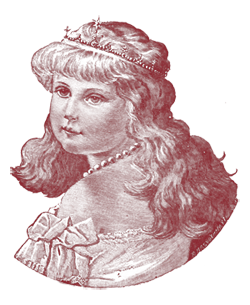Short Stories » Envy Defeated
Envy Defeated
MANY years ago, in Denmark, there was a workman in the ship-building yards belonging to the government. In that country, dishonesty is severely punished. This man was a workman of more than ordinary ability, and after a while his comrades began to envy him, for he was never out of work, and, being temperate and frugal, he was becoming better off than some others who spent their earnings freely.
The carpenter had a, wife and one daughter about twenty years of age, and they lived in a humble cottage, very neat and as attractive as their means and labor could make it, from gateway to fireside.
After a few weeks of discontent, the workmen concocted a plan for the overthrow of this carpenter. A few large nails were slipped into his jacket pocket after he had laid it aside, and then the charge of theft was preferred against him, to the superintendent. A search was ordered, and the nails were found. It was inferred that this petty thieving might have been going on a long time, and as the testimony of his comrades was all unfavorable to him, he was sentenced to a term of imprisonment. This also meant loss of work in the future, for, his good name being gone, who would employ him?
When the news came to the little cottage, the surprise and distress of the mother and daughter were beyond words to describe, but they would not believe the accusation. After some time spent in weeping and wondering, the daughter became calm, and assured her mother that she was going to make an effort to obtain her father's honorable release. She took a small sum of money and went to a shop. On her re- turn she entreated her mother to retire to bed and be prepared to aid her on the morrow. Fervent prayer was offered up, and the mother went to her own room. All night a light burned, and in the morning the dutiful daughter awakened her parent to rise and partake of coffee and bread. After their frugal meal, the mother went to the door and looked down the long lane where for so many years her husband had come and gone to his work. Sad thoughts and fears were filling her mind, when her daughter stood before her, clad in simple white, her beautiful hair loosened and covering her shoulders like a silken cloak. " The king comes through the forest to-day; I will speak to him." The mother clasped the girl to her heart and with a caress and blessing released her. It was so early that the street was still and the girl hastened on to the forest, no one observing her at that hour.
The good king, with his brave attendants, was riding merrily along when, suddenly, from behind a thicket, stepped forward a girl in white, and knelt before them. Some cried "Danger!" and would have hurried her from the presence of the king, but he ordered that the girl be heard before judging so hastily.
Accordingly, the story of her father's trouble was related, and the king's face wore an . expression that none could understand. "What is your name?" " Hilma, your Majesty." "Will you conduct me to your home? " the king asked, and Hilma joyfully answered "Yes," and led the way. Then the king alighted, and, throwing his bridle over his arm, walked beside the village girl through the forest to her humble door. His attendants, following the example of their king, followed in quiet procession, a strange and new sight to the villagers.
Entering, he greeted the mother with kindness, assuring her that he would personally inquire into the matter, then rode away.
Very soon, the officers of the law before whom the case was tried, the witnesses and prisoner were brought before the king. Then the king, in a low voice that none heard, said a few words to the carpenter that shook him with surprise; and while all wondered, the king proclaimed him a free man, and they went out side by side back to the little cottage.
Can you imagine the joy of those who watched them approaching ? Once again within the walls of that lowly home, and while his courtiers waited without, the king asked the girl a question which sent the color to her face, then left her pale and trembling. She looked at her father, and met a steadfast, approving look in his face. "Accept it, my daughter, in gratitude and joy, for what has not our king done for his poor servants ! " " Nay, my friend, not as a debt of gratitude, for justice was your right; but if this maiden can give me her heart, I will give her all I can bestow but a place beside me on my throne, and my subjects will understand and honor her in her position, and for her deed as a daughter."
Hilma understood the nature of a morganatic marriage. Then, as she looked in the face of the king, she thought how handsome and noble, how gentle and good of heart he was, to listen to her petition who would not love him ? and knew that she could have loved him if he had never been a king, and she ex- tended to him her hand. The king took from his own hand a jeweled ring, and placed it on her finger, then he rode away with all his grand men.
Very soon after this, Hilma was married to the king "with the left hand," which means a wife of second degree. The king provided fine estates and a title for Hilma, and made legal provisions for their children, if God should so bless them. The parents were removed far from their old associates to a home near their daughter ; and those who lately hated them, and would have caused their ruin, would have been very humble and respectful if they could have approached them.
The good queen had never been blessed with an heir to the throne, and the king and she had often mourned that they had no dear little one to caress, for such feelings are natural to every true heart; also they knew that their name would die out, and another family would succeed to the throne when they were gone. So this noble queen had given her consent that if he could find some pure-hearted, proven maiden, he should take her.
When the king told her of Hilma, she expressed a desire to look upon her, unknown to the humble girl. Accordingly, one day Hilma was taken to a picture-gallery, and while admiring those works of art, the queen silently watched the gentle, modest girl. Turning at last to the king, she said : " I am satisfied ; she is worthy the honor you have given her."
Long after this, while Hilma was one day gazing with love and happiness upon the precious babe in her arms, a lady silently entered the apartment and advanced toward her. She looked steadfastly upon the innocent babe, stooped and kissed it, gave her lovely hand to the mother, then left the room. It needed no one to tell Hilma the secret so like a blessing and love it was the queen.
Thus envy did its work, but not as it intended. Affliction and sorrow were in that case blessings in disguise, and Hilma's goodness was her own reward, and became the pride and comfort of her humble parents. The story of her meeting the king endeared her to the people, and they also honored him and his noble queen for their course.
Their children attained to al] that could be desired in the wishes of the countrymen, and they, loving them tenderly, bestowed titles and positions upon them.
Envy Defeated - Takeaway for Class 1,2,3
It's important to be happy with what you have and not be jealous of others, because everyone is special in their own way.
Envy Defeated - Takeaway for Class 4,5,6
It's important to be happy with what you have and support your friends, rather than feeling jealous of them.
Envy Defeated - Takeaway for Class 7,8,9
Always appreciate your own unique qualities and achievements rather than focusing on others, as envy can prevent you from seeing your true potential.
3 Fun Facts
- Mario was always jealous of his classmate Tony, who was good at everything and always got praise from teachers.
- Mario learned that being envious doesn't make you happy and decided to improve himself instead.
- By helping Tony win a math contest, Mario realized the joy of friendship was much more rewarding than envy.
Quiz for Class 1,2,3
- What was the name of the boy who was good at sports and playing the violin?
- Why did Johnny not like Peter at first?
- How did Johnny feel when he spent time with Peter and became his friend?
Quiz for Class 4,5,6
- What was the main reason behind Daisy Duck's envy towards the other animals in the forest?
- How did the wise Owl help Daisy Duck overcome her feelings of envy?
- By the end of the story, what lesson did Daisy Duck learn about appreciating oneself?
Quiz for Class 7,8,9
- What was the initial feeling that Tom had towards his classmate when he discovered his new talent for painting?
- How did Tom's perception of his classmate change after spending time learning from him?
- What lesson did Tom ultimately learn about dealing with feelings of envy and jealousy?
Was this article useful?
We’d love to hear from you! Share your valuable feedback and suggestions to help us improve your experience and serve you better.
❤️ If you’re happy with our website, please consider supporting us — Donate Now!
🌟 Or leave a positive review here to encourage our team!















